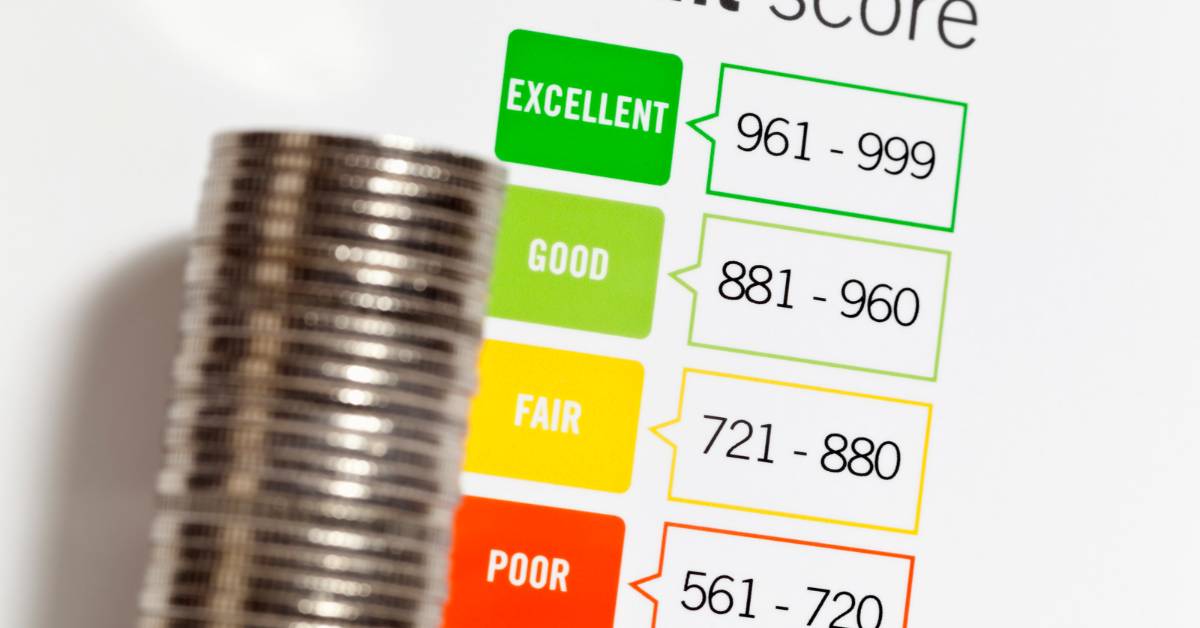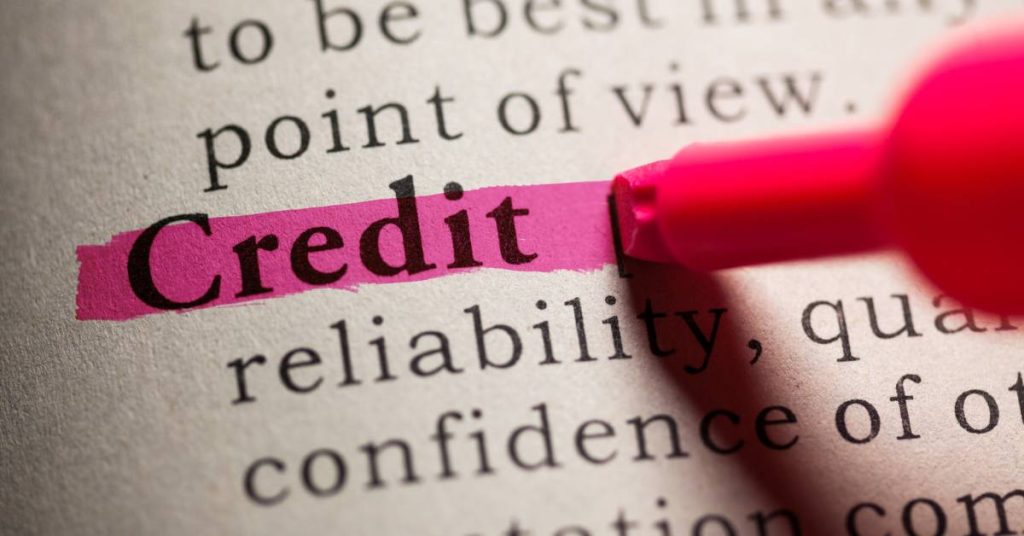Your credit is your financial resume.
It tells a story to potential lenders about how well you’ve managed your debts and whether you pay your bills on time.
When it comes to applying for an FHA loan, credit requirements can play a big role in the approval process.
In this article, we’ll explore the credit requirements for FHA loans and what you can do to improve your chances of getting approved so that you can become a homeowner.
FHA Loan Requirements: Your Credit Score
Credit scores can play a big role when it comes to FHA loans.
The higher your credit score, the better terms you’ll get.
Your credit score is an important indicator of your financial trustworthiness and responsibility. Lenders use this number to determine how likely you are to pay back a loan or make payments on time.
The higher your credit score, the more trustworthy you appear to lenders and the better terms they’ll offer you on loans, such as lower interest rates.
So if you don’t pay your bills, your score will reflect that.
But some quick notes on that…
Credit Isn’t Black and White
When it comes to credit and FHA, things aren’t always black and white.
Yes, you should always pay people back that lent you money, but sometimes “life happens” which can make taking care of your financial obligations difficult.
The truth is…nobody can predict the future, and because of that, your credit score may not reflect that and you still have a very good chance of getting approved, despite having a lower credit score.
The good news is that you can recover from it.
Just keep in mind that what you may lack in credit, you’ll need to make up in other places.
An example of this is a higher down payment.
This is part of a process called manual underwriting. The manual underwriting requirements are in place to protect the FHA from loan defaults and ensure that borrowers are financially responsible.
Evolution of Credit
The great thing about credit scores is that they aren’t fixed numbers.
Just like people, they evolve. And like people, they can improve over time.
In fact, now your payment history gets rewarded more than ever before, so the more you keep up with your payments, the more your credit score is going to go up over time.
Credit Pulls
A big question you may be wondering is “Will my credit score drop if I get my credit pulled?”
FHA loans use a soft credit pull, meaning they don’t have a hard pull on your credit report, which can have a negative effect on your credit score.
The way it works with mortgage credit pulls is that you’re incentivized to shop around, so regardless of how many times your credit gets pulled, you’ll see a minimal to no impact.
What Impacts Your Credit Score
| Factors | Percent | Details |
|---|---|---|
| Payment history | 35% | The most important component of your credit score is your payment history. Payment history accounts for about 35% of your credit score. If you default on a loan, have collections or judgments on your accounts, or have too many recent late payments, this can negatively affect your credit score. |
| Credit utilization | 30% | The percentage of your available credit you're using makes up about 30% of your score. In other words, the more of your credit you're using, the less likely you are to pay back your loan on time. |
| Length of credit history | 15% | The longer that you've had credit, the better you look to lenders. This shows that you're able to make payments on time each month and have some consistency. |
| Types of credit | 10% | Lenders like to see that you've used different types of credit and have a healthy mix of credit types, such as credit card accounts, auto loans, student loans and mortgages. |
| New credit | 10% | This is a less common factor, but it accounts for about 10% of your credit score. New credit can indicate a problem like you're trying to take out a loan you can't afford or are having trouble repaying past debts. |
How to Improve Your Credit Score
Here are 3 quick ways to boost that credit score:
- Pay your bills on time: Payment history is the most important factor in your credit score, so if you’re having trouble paying your bills on time, you should prioritize this over anything else.
- Pay down debt: By reducing your debt-to-income ratio, you’re reducing the amount of debt you have every month. This can improve your credit utilization and could have a positive impact on your credit score.
- Check your credit report for errors: You should check your report for errors regularly because this can negatively impact your score. When errors are found on your report, you can get them fixed by filing a dispute with the credit bureaus. You can get a free copy of your credit report every 12 months by visiting AnnualCreditReport.com.
Credit Requirements for FHA Loan
Generally speaking, FHA lenders don’t just look at a number and call it a day.
Your credit score acts as a filter, but it’s not everything.
There’s more to it. In fact, there’s a hierarchy.
What Factors Are Important When You Apply for an FHA Loan?

Here is a list of the most important factors lenders consider when approving an FHA loan:
- Reviewing previous rental or mortgage payment history: Lenders want to see that you’ve made your housing payment on time because it shows lenders that you’re financially responsible.
- Recent and/or undisclosed debts and inquiries: Taking on new debt is a bad idea, especially if it increases your debt-to-income ratio. Adding on new debt creates more financial risk for lenders. Likewise, if you’re applying for a bunch of new credit cards all at once, it can be seen as a sign you’re taking on too much debt.
- Collections and judgments: You must explain and document any collections or judgments on your credit reports, in writing.
- Paying off collections and judgments: FHA does not require that collection accounts be paid off as a condition of mortgage approval. However, if you have any court-ordered judgments, they must be paid off before the mortgage loan is eligible for FHA insurance endorsement.
- Previous mortgage foreclosure: You will generally not be eligible for a new FHA-insured mortgage if during the previous three years, your previous principal residence or other real property was foreclosed, or if you gave a deed-in-lieu of foreclosure. The only lender exception to the three-year requirement is if the foreclosure was the result of documented extenuating circumstances that were beyond the control of the borrower, such as a serious illness or death of a wage earner, and the borrower has re-established good credit since the foreclosure.
- Chapter 7 bankruptcy: At least 2 years need to have passed and you must have re-established good credit or not taken on any new credit obligations.
- Chapter 13 bankruptcy: One year of the bankruptcy payout period has gone by, you’ve made your payments on time, and you have received permission from the bankruptcy court to get a new mortgage.
- Consumer credit counseling payment plans: At least one year has elapsed and you have made all payments on time and you’ve received written permission from the counseling agency to get a new mortgage.
- Short sales: It’s best to give us a call for this one because it’s a little complex, but to simplify it, you can’t get an FHA loan if you pursued a short sale agreement of your primary house if you were trying to take advantage of declining market conditions or buy a similar/better property within reasonable commuting distance at a price below market value.
What Credit Score Do You Need for an FHA Loan?
You need a 580 credit score (with us at least).
The credit score you need for an FHA loan will vary based on the lender. A higher credit score will get you a better rate, but a higher credit score can also help you qualify for a larger loan amount.
What Is the Minimum Credit Score for an FHA Loan?

While FHA can go down to a 500 credit score, there are lender overlays that can raise the minimum score.
A lender overlay is when a lender adds additional requirements to the standard guidelines to protect themselves.
For example, a lender can say “Ok, for us to be able to do this, we need to add 80 points to that baseline score.”
Lender overlays aren’t just for FHA; they are for all loan types.
FHA Loan No Credit Score Requirements
When there is no credit scores or credit history available from the three credit reporting agencies, you’ll need to get documentation from creditors who don’t usually report to credit agencies.
Here are a few examples of what you may need:
- Letter from your landlord documenting the on-time rent payments
- Payment history for your utility companies (gas, electric, water, etc)
- Payment history for your property taxes
- Payment history for your cell phone or internet provider
- Payment history for your homeowner’s insurance
- Payment history for your car insurance
These are referred to as “non-traditional credit”, alternative credit sources, or trade lines.
Once you get these to the lender, you’ll go through manual underwriting where an underwriter looks at all of this information and verifies that it’s accurate. The underwriter then uses all of this information to make their decision.
What Score Does FHA Loan Use?
What FICO score is used for an FHA loan? Contrary to what most think, mortgage lenders do not use a FICO score.
They take the middle score from all 3 credit bureaus (Experian, Transunion, and Equifax).
Can I Get FHA Loan With 600 Credit Score?
Yes, you can, depending on the lender.
Can I Get an FHA Loan With 580 Credit Score?
Again, depending on the lender, yes you can.
Typically the bigger the lender, the more of a risk they can take lowering their minimums.
Who Does FHA Loans With 580 Credit Score?
You can scour the internet to try and find a lender that does, but the good news is, we go down to a 580, so we just saved you a few hours.
How to Get an FHA Loan With Bad Credit
To qualify for an FHA loan with bad credit lets first define what bad credit is in the eyes of a lender.
Bad credit is anything under a 580 credit score.
How to Get Approved for an FHA Loan With Bad Credit
So in order to get approved for an FHA loan with bad credit, you have to have compensating factors such as:
- Higher down-payments
- Lower DTI ratios
- Higher cash reserves
This isn’t an exhaustive list by any means, but these are the main compensating factors you may want to pay attention to.
FHA Loan Requirements for Bad Credit
The requirements here are everything you would need normally for an FHA loan (credit, down-payment, work history, etc), but you would need to beef up the compensating factors so you can make the good overshadow the bad.
That’s the goal here – to give the lender a reason to look beyond the credit score and show how awesome all these other things are.
Wrapping it Up
To meet the credit requirements for an FHA loan, you must understand how credit works, how to take care of it, and how to build it up if needed.
If you follow everything we put together in this guide, you’ll be able to apply for your FHA loan with the confidence and knowledge you’ll need to get through underwriting and closing on your home loan.
As always, if any questions pop up, feel free to give us a call or get in touch so we can get everything answered.
Frequently Asked Questions
Can a cosigner help a borrower with bad credit qualify for an FHA loan?
Unfortunately, no.
If you have a 500 score and a you get a co-borrower/cosigner who has a 700, the lower of the scores are used to qualify.
How do FHA loan credit requirements compare to those of conventional loans?
They are much more forgiving.
With conventional loans, it’s a very tight box that you need to fit into.
With FHA loans, you have nearly endless opportunities to get the loan approved.
How does a borrower’s credit score affect the interest rate on an FHA loan?
There are credit score tiers that may either bump up the rate because of risk, or reduce it.
In a nutshell, the higher your credit score, the better chance you have of getting a lower rate






